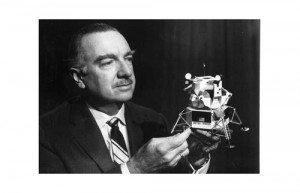When Walter Cronkite anchored the CBS Evening News, his trademark sign-off was sometimes criticized as an overstatement. How could he end each broadcast, “And that’s the way it is,” when his 30-minute program provided only a brief glimpse of the day’s events?
Cronkite admitted that a network newscast was at best a headline service. As he once put it, “I wanted to end every broadcast saying, ‘For more details, see your local newspaper.’ ” But in the 1960s and 70s, there was no debate about the value of a nightly summary of the news. When Cronkite told the nation what had happened that day, it really was news to them. And it seemed to be a given that whatever the broadcast covered was the most important news of the day.
Cronkite’s death at the age of 92 does not mark the end of an era. The truth is, the era of the influential network anchor ended when he retired in 1981. Fill in the blank in this famous quote: “If I’ve lost ___, I’ve lost middle America.” The only name that fits is Cronkite.
His commentary on Vietnam in 1968 was one of his most memorable broadcasts, in part because it was such an aberration. Cronkite, with his background as a United Press wire service reporter, didn’t often say what he thought on the air. But he did knit the country together in good times and bad. When President Kennedy was assassinated, Cronkite soberly informed the nation. When man landed on the moon 40 years ago, Cronkite shared the excitement.
Cronkite inspired a generation of journalists to believe in the power of television as a news medium. As a college student, I watched his coverage of the 1968 presidential election and realized that newspapers couldn’t match TV’s immediacy and impact. A decade later, I had the privilege of working briefly with Cronkite at CBS, where he set exacting standards of accuracy and credibility.
I still remember the thrill of hearing him say my name on the air in 1981, introducing the first story I ever reported for the CBS Evening News. A few months later, he retired, forced out by CBS managers who decided he couldn’t stay past the mandatory retirement age of 65. He went gracefully, although he resented it, especially after the network allowed his successor, Dan Rather, to work past 70.
There won’t be another Cronkite. There never has been. Rather, ABC’s Peter Jennings and NBC’s Tom Brokaw made their own marks as network anchors in the 1980s and 90s, but no one called any of them “the most trusted man in America.” Washington Post critic Howard Kurtz says it’s healthy that no one will ever trust another journalist the way they trusted “Uncle Walter.”
Perhaps that’s the way it should be, but I’m not so sure. Yes, it’s a good thing that no one source dominates the news agenda. But it seems to me that every journalist should aspire and work hard to be trusted. If Cronkite taught me anything, he taught me that.






